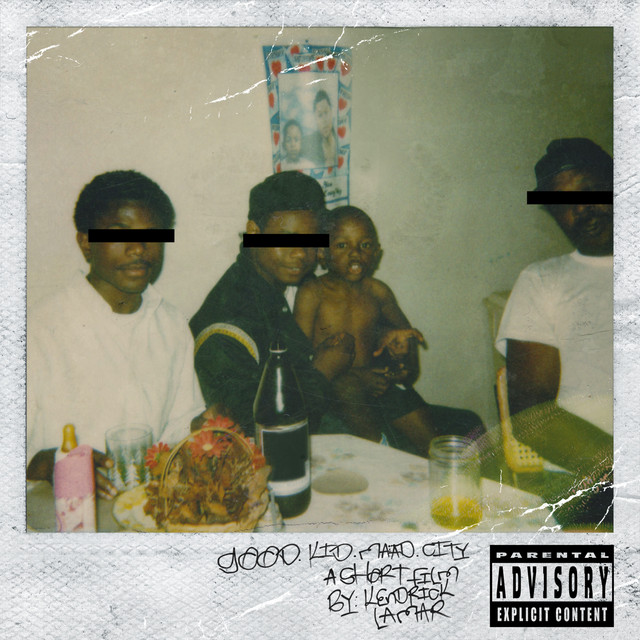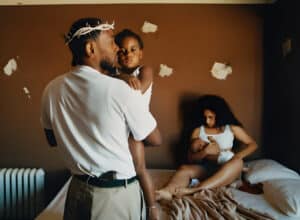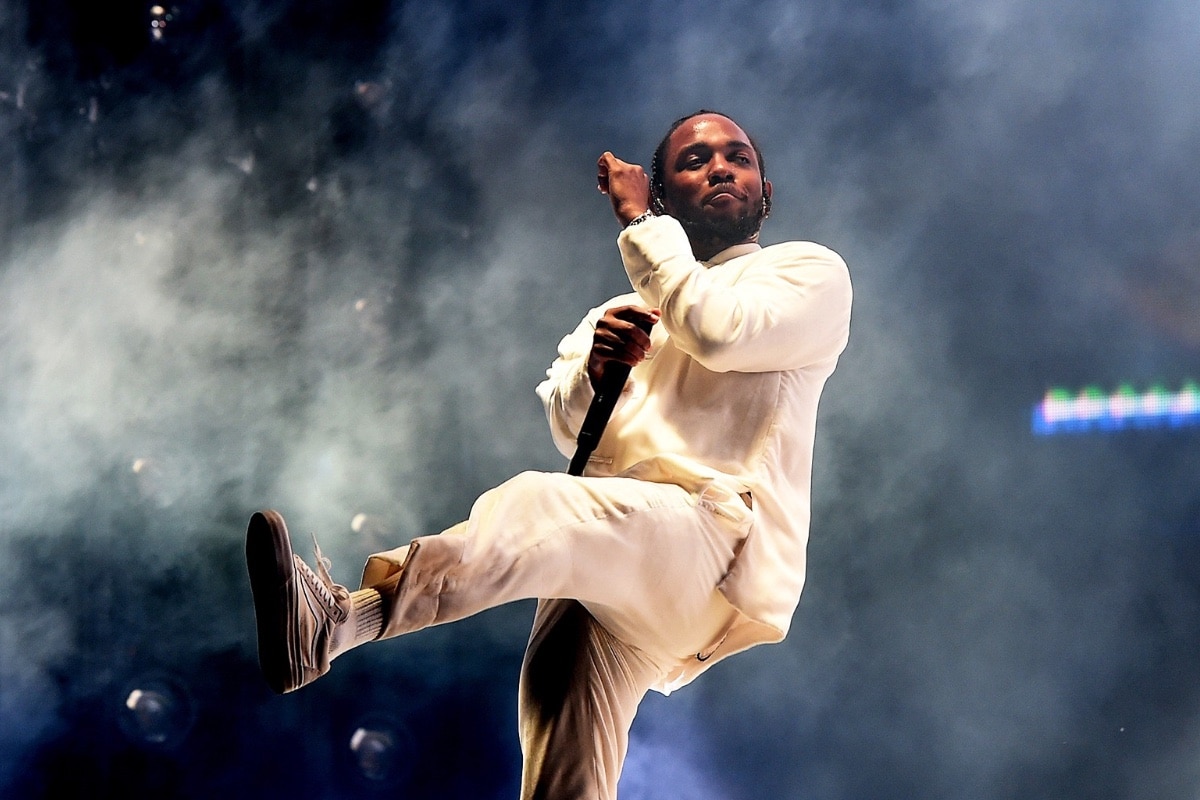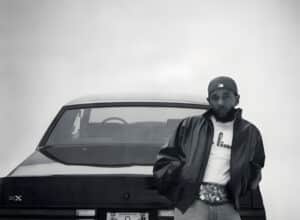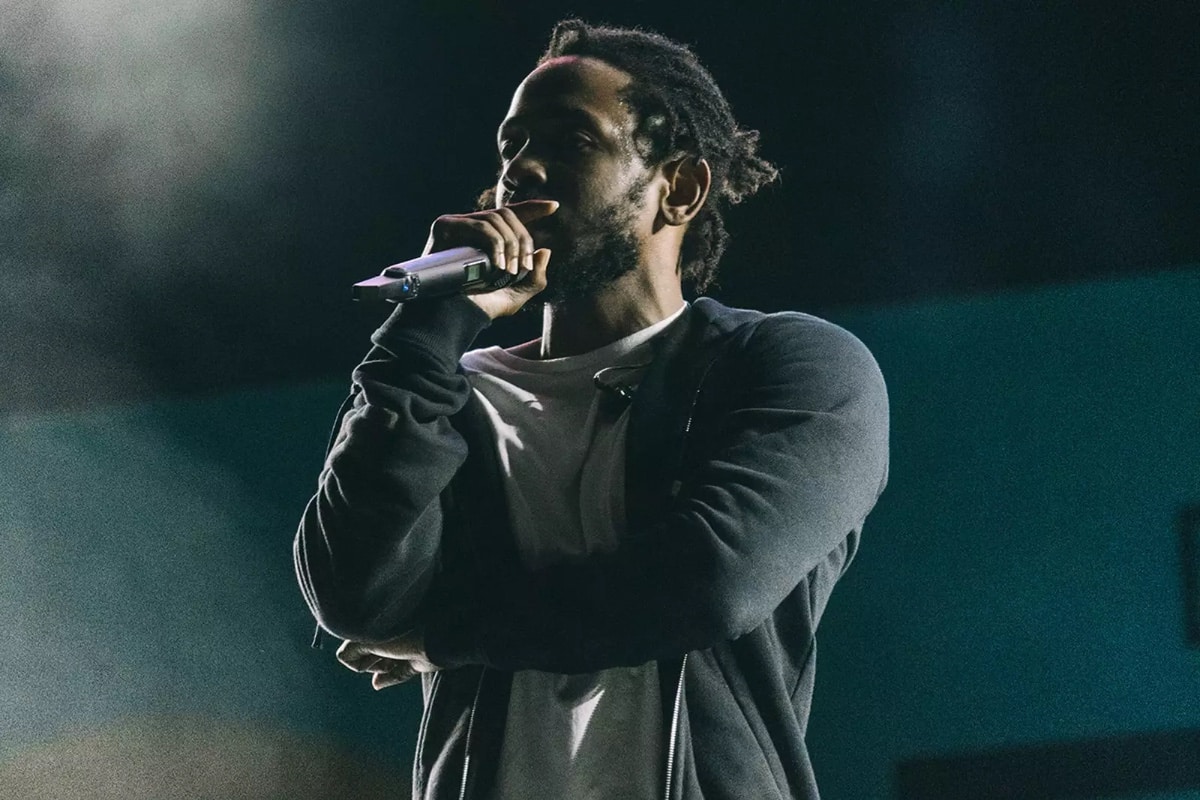Released: 2012 • Features: MC Eiht
In “m.A.A.d city”, Kendrick Lamar and MC Eiht take listeners on an intense journey through the perilous streets of Compton. Along the way, they offer a raw and unfiltered examination of the harsh realities of gang life, substance abuse, and systemic inequality, framed against the backdrop of their personal experiences.
“If Pirus and Crips all got along / They’d probably gun me down by the end of this song” – Kendrick begins on a hard-hitting note, imagining his fate if rival gangs, the Bloods (represented by the ‘Pirus’) and the Crips, united against him. “Yawk! Yawk! Yawk! Yawk!” symbolizes gunshots, a constant threat in the violent environs Kendrick is painting.
Kendrick’s verse, “Brace yourself, I’ll take you on a trip down memory lane / This is not a rap on how I’m slinging crack or move cocaine” establishes that this isn’t your average hip-hop track glorifying drug-dealing or violence. The journey down “memory lane” is a chronicle of his experiences in Compton, illustrated through vivid, sometimes gruesome, storytelling. So brace up!
When he details, “That was back when I was nine, Joey packed the .9 / Pakistan on every porch is fine, we adapt to crime”, he’s alluding to the normalization of crime in his environment, where a 9-year old kid packing a .9 mm firearm is a part of daily life, as regular as sitting on porches (the ‘Pakistan’ reference).
In the chorus, “Man down, where you from, nigga? / Fuck who you know, where you from, my nigga?” the ‘where are you from?’ signifies the extreme territoriality in gang cultures where one’s block of origin often determines their fate.
With, “They say the governor collect all of our taxes except / When we in traffic and tragic happens, that shit ain’t no threat”, Kendrick is casting a spotlight on political neglect and governmental failure, evidencing a societal structure that takes from the community in taxes but fails to provide safety and justice in return.
MC Eiht’s verse complements Kendrick’s, echoing the challenges of daily life in Compton, the struggles of a youth caught in its compromising environment, and the allure and inevitability of gang life. “A couple of drive by’s in the hood lately (G-yeah) / Couple of IV’s with the fucking spray-can / Shots in the crowd then everybody ran” paints a truly grim picture.
In the closing verses, Kendrick recounts his own brushes with violence, questioning societal perceptions and prejudices, “If I told you I killed a nigga at sixteen / Would you believe me? / Or see me to be innocent Kendrick you seen in the street / With a basketball and some Now and Laters to eat?” He throws light on the perpetual cycle of violence, and the warped hopes and dreams this environment births.
Through “m.A.A.d city”, Kendrick Lamar and MC Eiht deliver a powerful critique of the intersections of poverty, crime, racial profiling, and systemic failure. The city is indeed “m.A.A.d” – both ‘mad’ in chaos, and ‘MAAD’ as an acronym for ‘My Angels on Angel Dust’, a reference to the rampant drug usage in the community. The message is clear – the game is rigged, the struggle is real.
